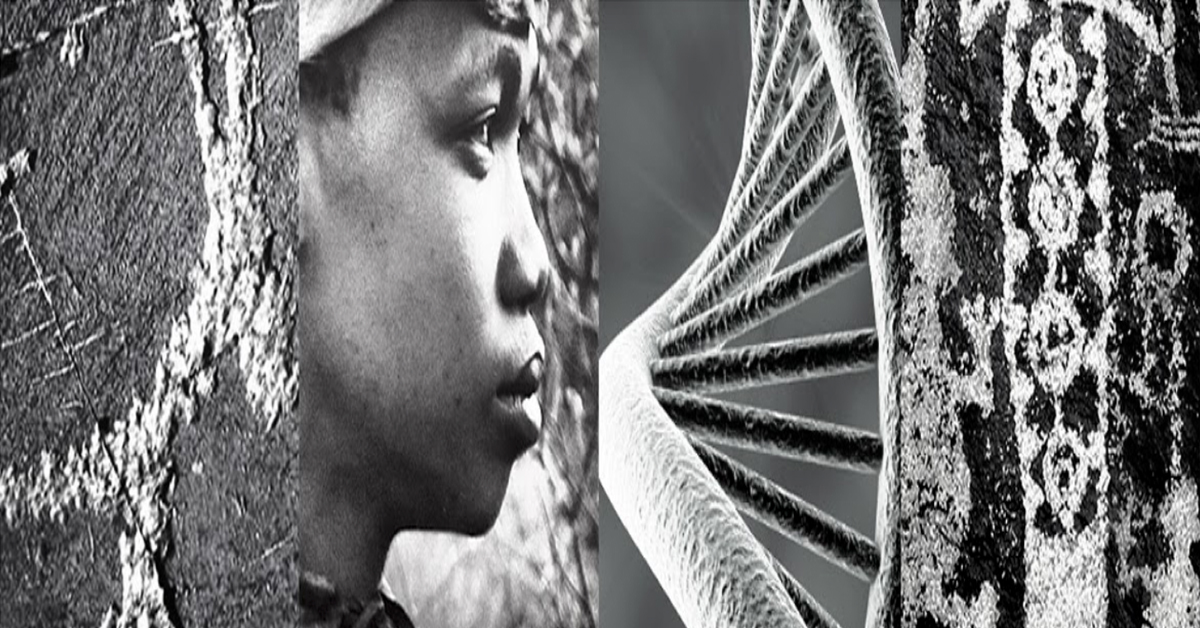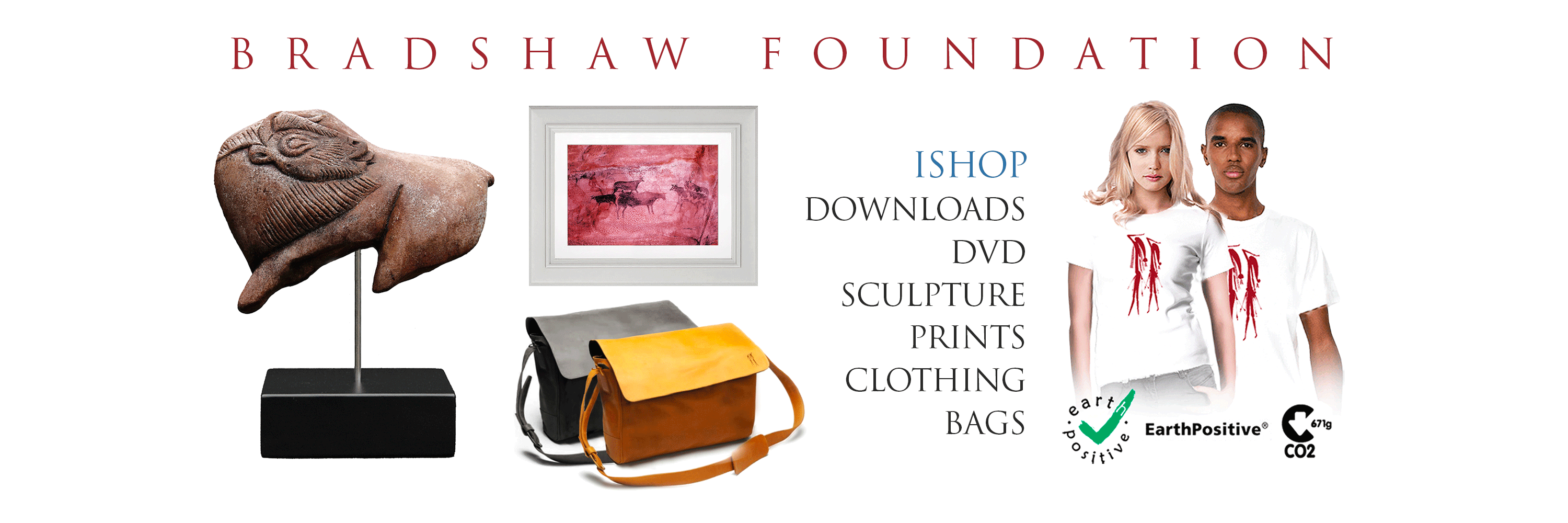
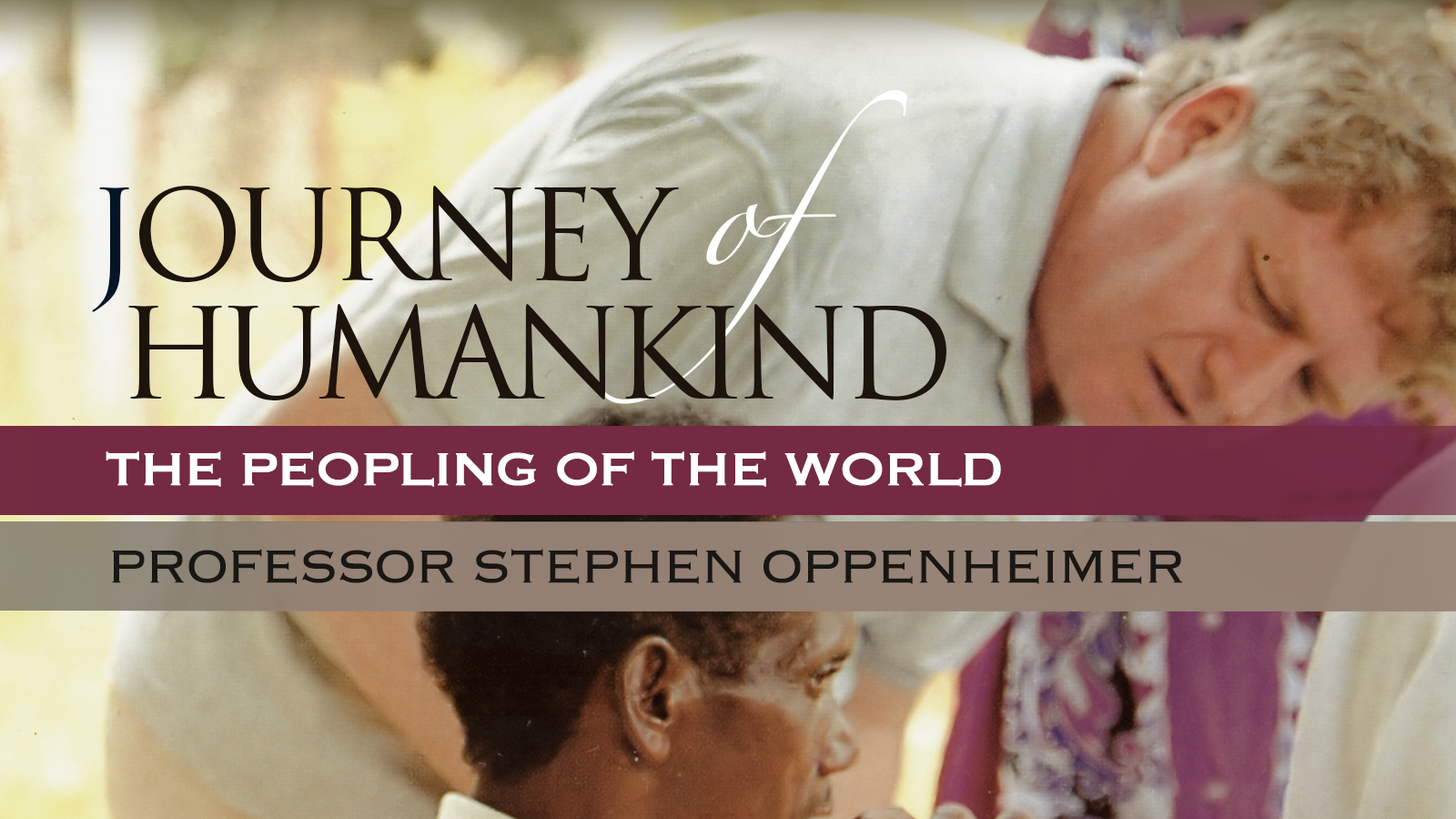
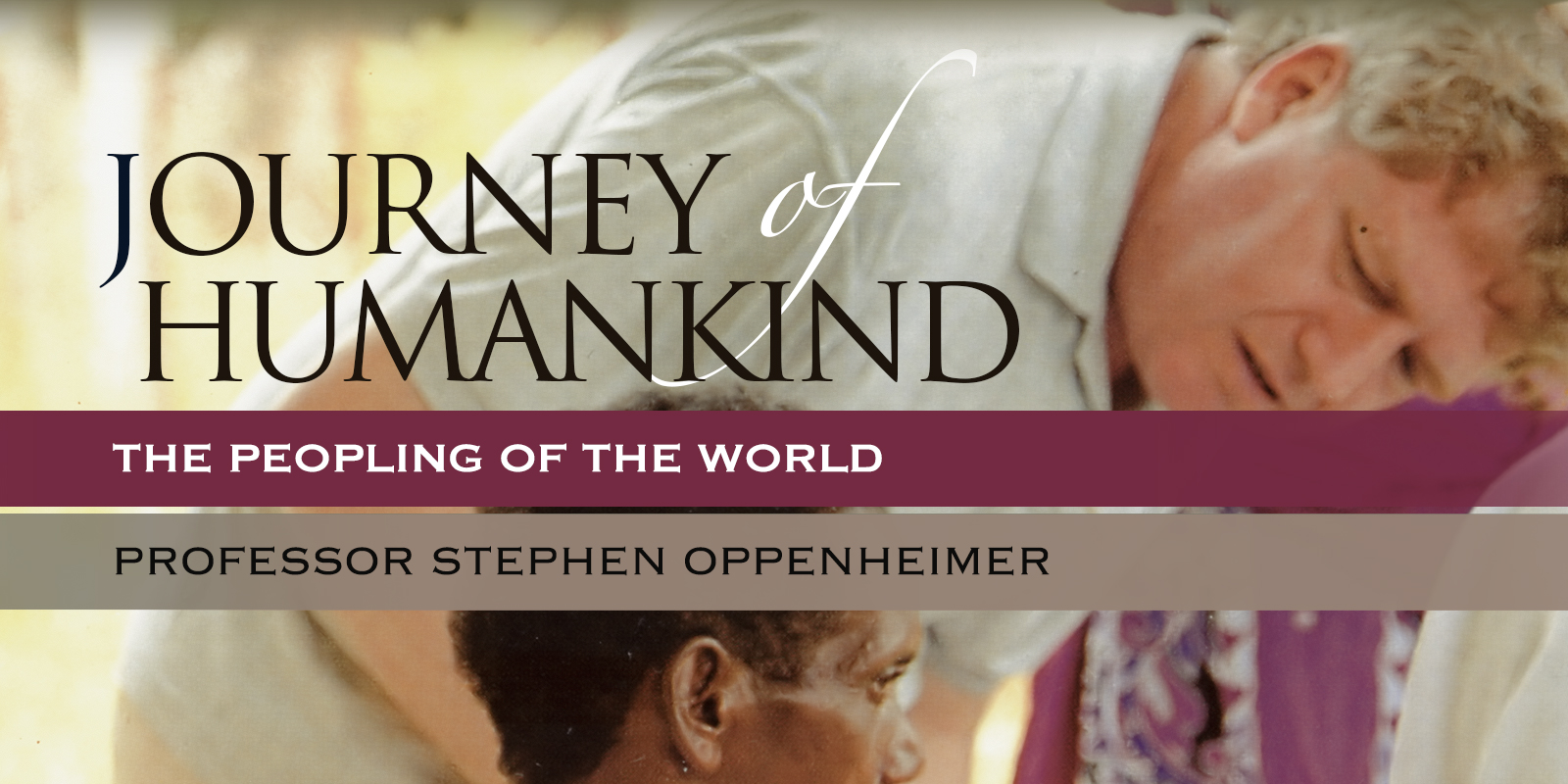
Who were our ancestors? From where did we originate? If we came out of Africa, what factors governed our routes? And when? Now finally this interactive genetic map, created collaboratively with Professor Stephen Oppenheimer, based on his book 'Out of Eden' / 'The Real Eve', reveals an exciting journey of opportunity and survival, confirmed by genetic science and documented by ancient rock art, we look in depth at the Journey of Humankind and investigate how modern science has helped shed light on this monumental exodus.
The Bradshaw Foundation, in association with Stephen Oppenheimer, presents a virtual global journey of modern humans over the last 160,000 years.
The map will show for the first time the interaction of migration and climate over this period. We are the descendants of a few small groups of tropical Africans who united in the face of adversity, not only to the point of survival but to the development of a sophisticated social interaction and culture expressed through many forms. Based on a synthesis of the mtDNA and Y chromosome evidence with archaeology, climatology and fossil study, Stephen Oppenheimer has tracked the routes and timing of migration, placing it in context with ancient rock art around the world.
* The interactive genetic map is currently being upgraded and will be available online shortly.

While working in New Guinea in the early 1980’s he was the first to notice anti-malarial protection conferred by -thalassaemia, a mild inherited blood disorder. This genetic disorder shadowed the spread of Polynesians out to the Pacific. That research subsequently led to his focus on the use of genetic markers to track migrations.
His first book Eden in the East - The Drowned Continent of Southeast Asia challenged the orthodox view of the origins of Polynesians as rice farmers from Taiwan and was widely acclaimed. Oppenheimer’s paradigm change, using a synthesis of genetics, archaeology, geology and linguistics, has since been endorsed by reviewers in Science. Out of Eden has been the subject of a Channel 4 programme of the same name and a Discovery Channel film The Real Eve.

→ Journey of Humankind - iLecture Documentary Film
Professor Stephen Oppenheimer, of Green College, Oxford University, has created a unique synthesis of genetic, archaeological, and climatic evidence in order to track the ancient migrations of all modern non-Africans.
Stephen Oppenheimer’s work forms the basis of the Journey of Humankind Genetic Map and this interactive journey, adapted from 'Out of Eden' / 'The Real Eve', can be viewed on the Bradshaw Foundation's website.
Journey of Humankind Genetic Map is based on the extensive research of Stephen Oppenheimer, author of several books on the migration of humankind, all of which are essential reading for those interested in the genetic, archaeological and anthropological study of our past.
→ For more information on the research and publications of Stephen Oppenheimer click here
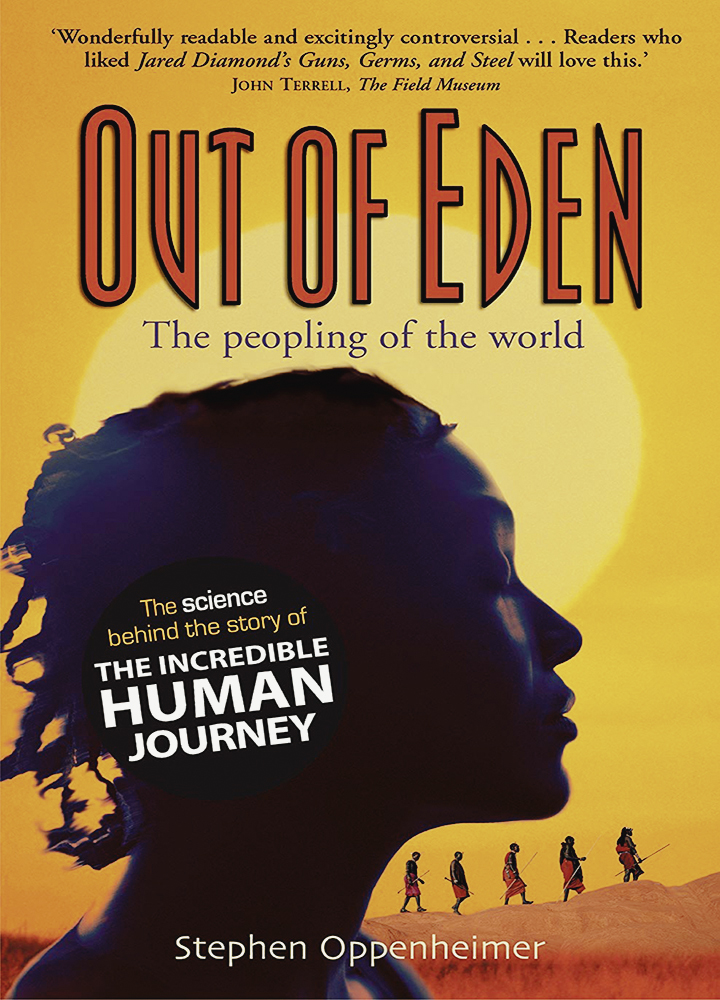
With a systhesis of new genetic, archaeological and climatic evidence, Stephen Oppenheimer challenges the orthodoxy by arguing that all modern non-Africans can be shown to have sprung from a single exodus. One migrant group of no more than a few hundred souls was forced out of its homeland by increasing salinity in the Red Sea, some 85,000 years ago, and all non-Africans today can trace their mitochondrial DNA to one woman from this group - the Out-of-Africa Eve.
Paperback 440 pages (July 2004)
Publisher: Constable and Robinson
ISBN: 1841198943
Reviews for the Out of Eden
'A wonderful, very readable book, written by an expert: Stephen Oppenheimer explains how our genes hold clues to the origin of our species, and tell the story of how our ancestors colonised the world.' Dr Alice Roberts, University of Bristol, Author of "The Incredible Human Journey".
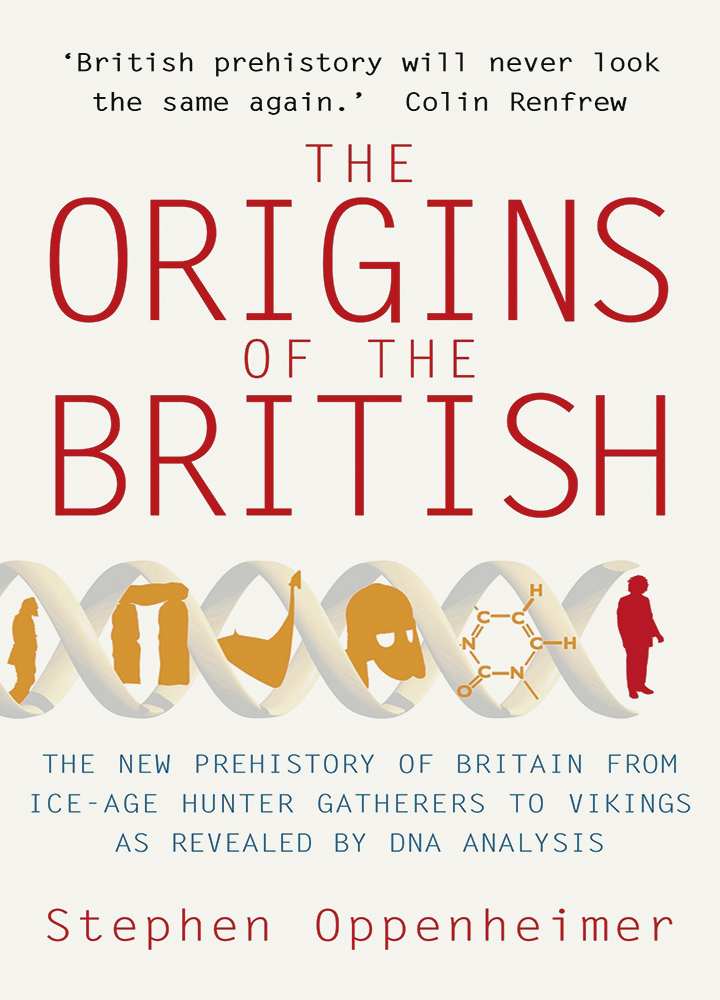
As a child, I sometimes wondered why people told jokes about Englishmen, Irishmen, Welshmen and Scotsmen. Why should our origins and differences matter? Part of growing up was realizing that they do matter and trying to understand why.
"This book challenges some of our longest held assumptions about the differences between Anglo-Saxons and Celts – perceived differences that have informed our collective sense of identity. Orthodox history has long taught that the Romans found a uniformly Celtic population throughout the British Isles, but that the peoples of the English heartland fell victim to genocide by the Anglo-Saxon hordes during the fifth and sixth centuries.
Now Stephen Oppenheimer’s groundbreaking genetic research has revealed that the ‘Anglo-Saxon invasion’ contributed only a tiny fraction to the English gene pool. In fact, three quarters of English people can trace an unbroken line of genetic descent through their parental genes from settlers arriving long before the introduction of farming.
Synthesizing the genetic evidence with linguistics, archaeology and the historical record, Oppenheimer shows how long-term Scandinavian trade and immigration contributed the remaining quarter – mostly before the arrival of the Anglo-Saxons. These migrations may have introduced the earliest forms of English.
And what of the Celts we know – the Irish, Scots and Welsh? Scholars have traditionally placed their origins in Iron Age Central Europe, but Oppenheimer’s new data clearly show that the Welsh, Irish and other Atlanticfringe peoples derive from Ice Age refuges in the Basque country and Spain. They came by an Atlantic coastal route many thousands of years ago, though the Celtic languages we know of today were brought in by later migrations, following the same route, during Neolithic times.
Stephen Oppenheimer shows us, in his meticulous analysis, that there is in truth a deep genetic line dividing the English from the rest of the British people but that, fascinatingly, the roots of that separate identity go back not 1500 years but 6,000. The real story of the British peoples is one of extraordinary continuity and enduring lineage that has survived all onslaughts.
Stephen Oppenheimer of University of Oxford is a leading expert in the use of DNA to track migrations. His last book Out of Eden rewrote the prehistory of man’s peopling of the world in a thesis that has since been confirmed in Science. He is also the author of Eden in the East: The Drowned Continent of Southeast Asia, which challenged the orthodox view of the origins of Polynesians as rice farmers from Taiwan.
Paperback 400 pages
Publisher: Robinson Publishing; New Ed edition (12 April 2007)
ISBN-10: 1845294823
ISBN-13: 978-1845294823
Reviews for the Origins of the British
'Stephen Oppenhimer's exciting new book sets a whole new agenda for prehistoric archaeologists working in Britain...essential reading for everyone interested in the origins of the Britons...British prehistory will have to be radically re-thought.' Barry Cunliffe, Professor of European Archaeology, University of Oxford
'Stephen Oppenheimer is the supreme genetic detective fishing for evidence in the gene-pools of history. Be prepared to have all your cherished notions of English history and Britishness swept away in this fascinating and superbly illustrated account of what makes up our national character.' Professor Clive Gamble, Department of Geography, Royal Holloway University of London
'A well-informed, original and challenging application of new genetic data to the early population history of Britain.... British prehistory will never look the same again' Professor Colin Renfrew, McDonald Institute for Archaeological Research, University of Cambridge
'Stephen Oppenheimer's challenging book contributes significantly to the growing body of genetic, linguistic, and historical evidence for an early Germanic presence in "Celtic" Britain.' Dr. Peter Forster, Molecular Genetics Laboratory, University of Cambridge
'Oppenheimer calls his book "a genetic detective story". It is. Pre-Roman language in western Europe was a locked-room mystery - until someone looked for the key.' Aubrey Burl, Archaeologist & author on megalithic monuments
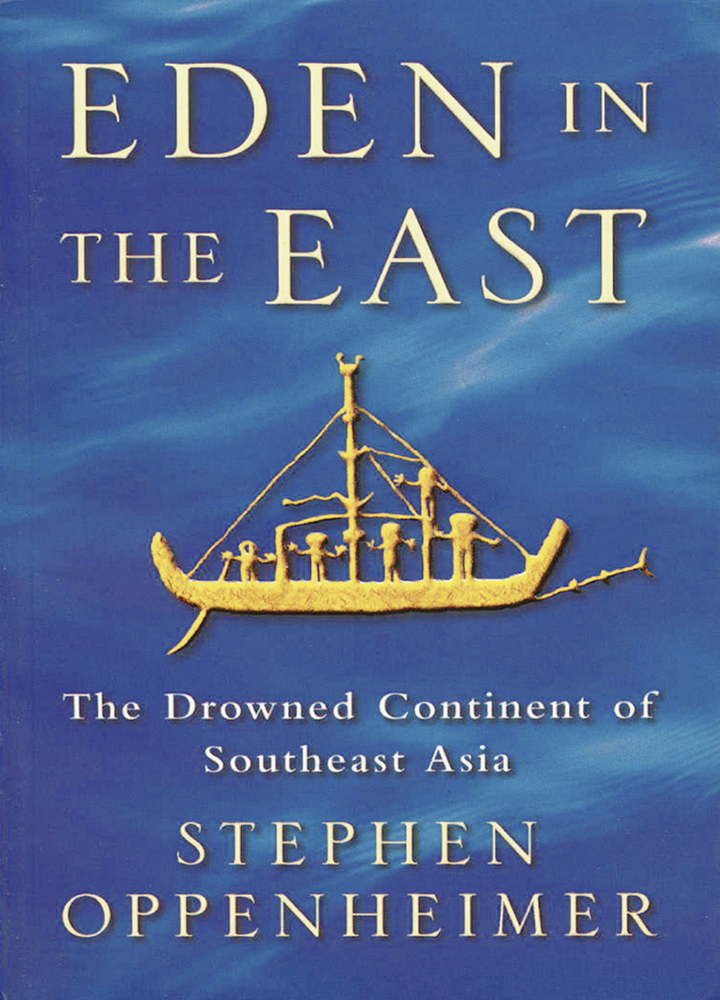
At the end of the Ice Age, Southeast Asia formed a continent twice the size of India. The South China Sea, the Gulf of Thailand and the Java Sea, which were all dry, formed the connecting parts of the continent. Geologically, this half-sunken continent is the Sunda shelf of Sundaland. In Eden in the East Stephen Oppenheimer puts forward the astonishing argument that here in Southeast Asia was the cradle of civilisation that fertilised the great cultures of China, India, Mesopotamia, Egypt and Crete six thousand years ago. He produces evidence from ethnography, archaeology, oceanography, from Creation stories, myths and sagas, and from linguistics and DNA analysis, to argue that this founder-civilisation was destroyed by the catastrophic flood, caused by a rapid rise in sea level at the end of the last Ice Age.
Paperback: 575 pages
Publisher: Phoenix; New Ed edition (1 July 1999)
Language: English
ISBN-10: 0753806797
ISBN-13: 978-0753806791
Product Dimensions: 12.7 x 3.8 x 19.6 cm
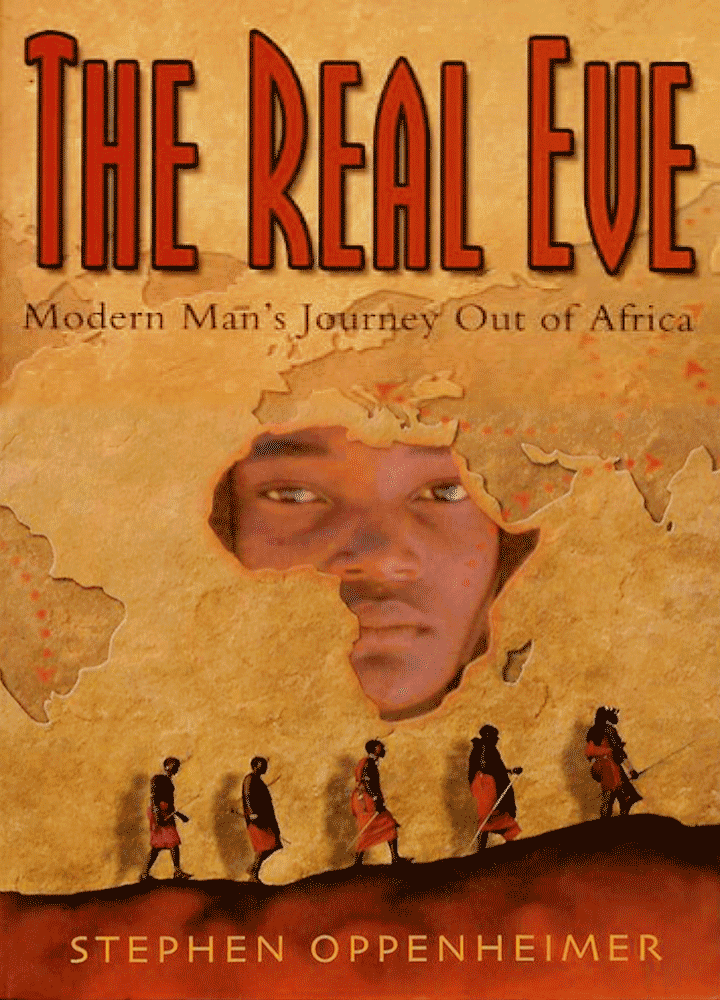
Out of Africa's Eden
Dimensions (in inches): 1.17 x 7.78 x 5.04)
Publisher: Carroll & Graf; (September 9, 2004) ISBN: 0786713348 Out of Africa's Eden - The Peopling of the World Publisher: Jonathan Ball Publishers
ISBN: 1868421732
About 80 millennia ago, out of one major exodus by migratory human ancestors from Africafrom Eritrea to Yemen (then to India and Australia, and eventually to Europe)was the entire non-African world in all its racial and cultural diversity ultimately peopled; and to one prehistoric woman in Africa 150,000 years ago, all the peoples of the world can trace their genetic origin.
So argues Stephen Oppenheimer in a groundbreaking volume that has stirred heated controversy among authorities in geology, linguistics, archaeology, and anthropology. Thoroughly researched and meticulously reasoned, with dramatic evidence garnered from recent advances in the field of genetics through DNA analysis, The Real Eve traces the evolution of modern humankind out of a common African ancestry for again and again, Oppenheimer's extensive genealogical research, based on our gender-specific so-called Adam and Eve genes, has led him straight back to Africa. His conclusions have placed him in direct opposition to multiregionalists, who maintain that archaic human populations evolved locally, and have unsettled many long-established anthropological assumptions and cultural prejudices to provide a fresh perspective on the nature of the human destiny that all of us on planet Earth share. Color photographs are featured in this fascinating story of our human beginnings.
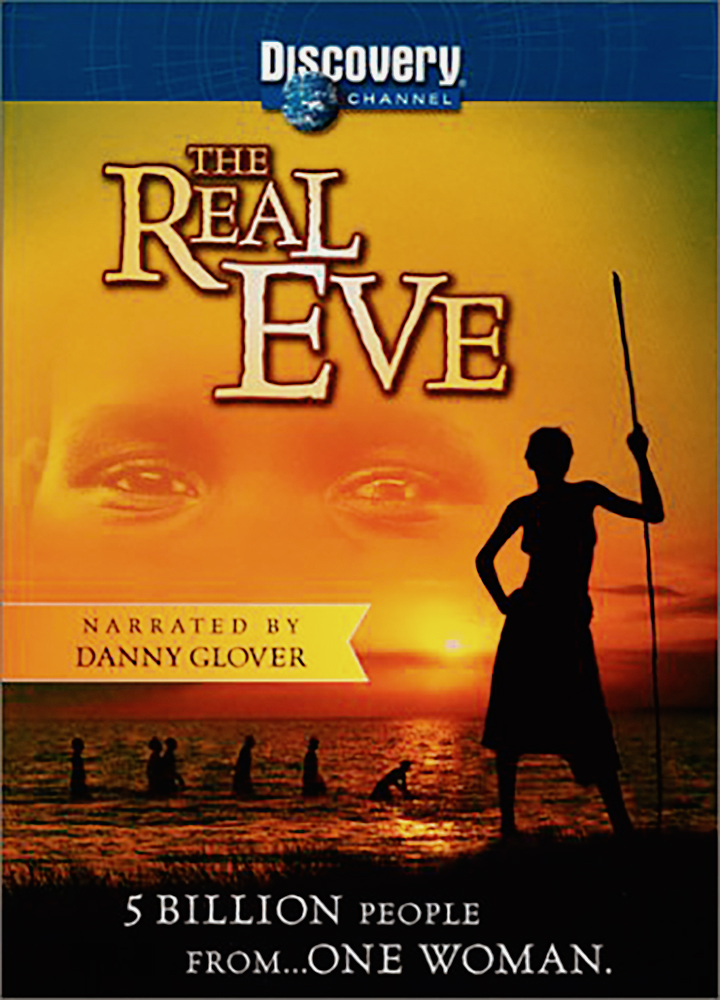
Who was "the real Eve"? What did she really look like, where did she live, how did the human race truly come to be? Travel back in time as Danny Glover narrates this fascinating look into the past to fined the very beginnings of the human race. Through exclusive access to the very latest DNA reconstructions and cutting edge technology, scientists can now for the first time conclusively answer the where, when and how's of this mysterious woman-mother to us all.
Actors: Danny Glover
Directors: Andrew Piddington
Producers: Harry Yates, Paul Ashton
Format: PAL
Language: English
Region: Region 2
Number of discs: 1
Classification: Exempt
Studio: Lace
DVD Release Date: 9 Aug. 2004
Run Time: 88 minutes
ASIN: B0002848IK
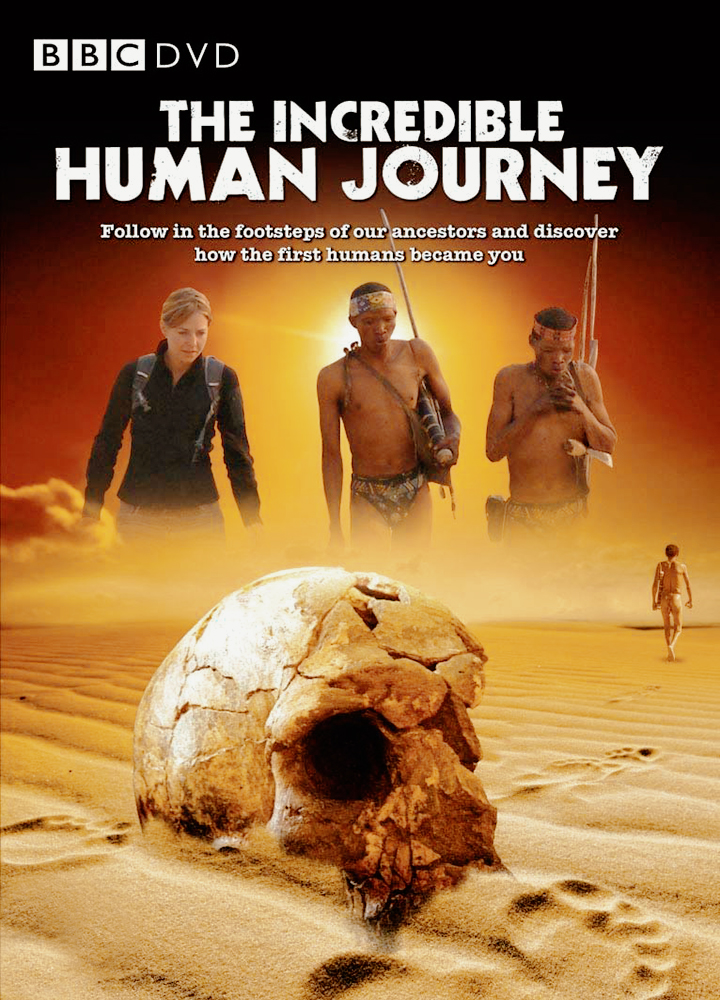
In this BBC documentary, Dr Alice Roberts travels the globe to discover the incredible story of how humans left Africa to colonise the world - overcoming hostile terrain, extreme weather and other species of human. She pieces together precious fragments of bone, stone and new DNA evidence and discovers how this journey changed these African ancestors into the people of today.
Alice travels to Africa in search of the birthplace of the first people. They were so few in number and so vulnerable that today they would probably be considered an endangered species. So what allowed them to survive at all? The Bushmen of the Kalahari have some answers - the unique design of the human body made them efficient hunters and the ancient click language of the Bushmen points to an early ability to organise and plan.
Humans survived there, but Africa was to all intents and purposes a sealed continent. So how and by what route did humans make it out of Africa? Astonishing genetic evidence reveals that everyone alive today who is not African descends from just one successful, tiny group which left the continent in a single crossing, an event that may have happened around 70 thousand years ago. But how did they do it? Alice goes searching for clues in the remote Arabian Desert.'






